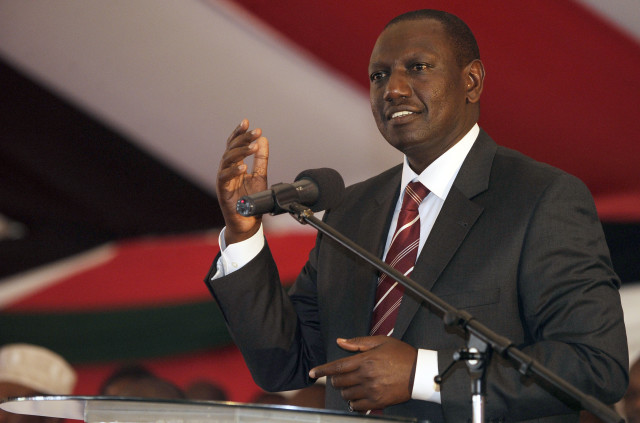Kenya accuses international community of failing to honor refugee return pledges

Less than one per cent of funds pledged by the international community to repatriate Somali refugees in Kenya have been delivered, Kenya has said warning the failure was an indictment on response to the plight of refugees by the global community.
Addressing the UN General Assembly in New York Monday, Kenya’s deputy president William Ruto said his country had borne the brunt of hosting refugees and had been left to shoulder the burden of repatriation.
The International community pledged $500 million to facilitate the repatriation but less than one person of the commitment had been realized, said Ruto.
“Nothing can better demonstrate the failure of international burden-sharing than this reality. It is also an indictment on the global framework for responding to human distress,” said Ruto.
The DP said Kenya had deployed $10 million to support the repatriation in addition to engaging the World Bank, the African Development Bank, Arab Development Bank to create enabling environment for Somalia to receive its people.
The warning came as Kenya insisted Friday it would go ahead with the closure of Dadaab camp November 30 this year despite earlier remarks by the country’s interior minister Joseph Nkaissery that it would hold back the process until Somali is pacified.
Interior Permanent Secretary Karanja Kibicho said Friday his country was still on course to close the camp as earlier announced.
In a joint statement last week, Kenya, Somalia and the UNHCR said 13,064 Somali refugees had voluntarily returned to Somalia while 439 have been settled to third countries to third countries since May 2016 to date
They noted however 2,000 returnees have been waiting for a way forward at the transit centres in Dagahaley and Hagadera camps in Dadaab.
Regional body IGAD announced last week in Mogadishu it would bring to the attention of the World Humanitarian Conference on the sidelines of the UN General Assembly in New York the dire need for humanitarian intervention in the region;